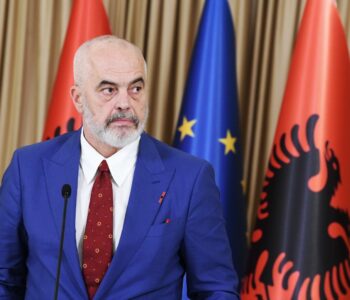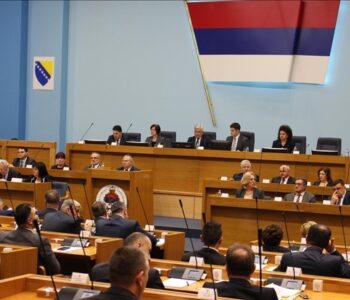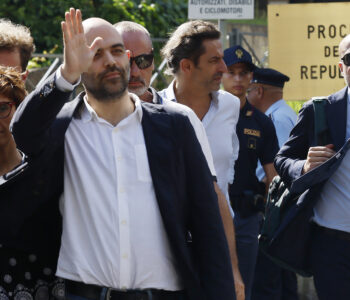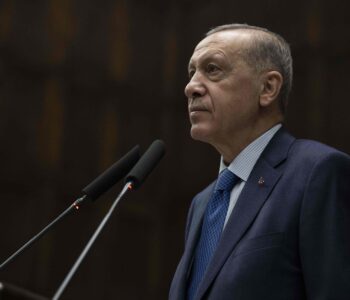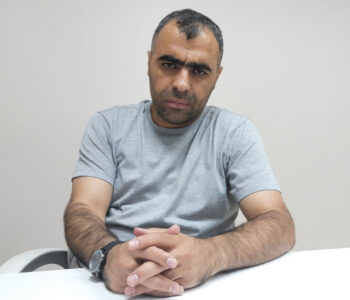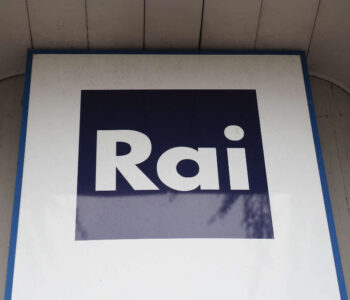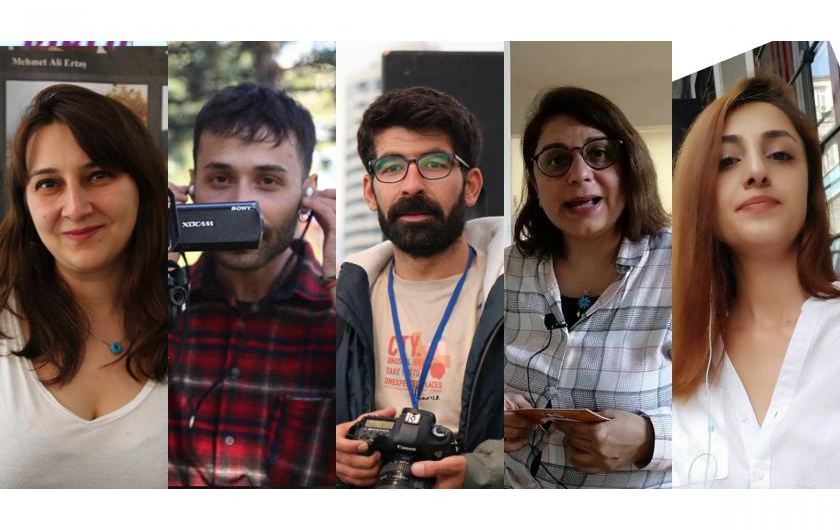
Turkey: International groups condemn detention of journalists in Ankara,…
Turkey: National and International groups condemn detention of journalists in Ankara, Diyarbakır, İstanbul and İzmir
The undersigned media freedom, freedom of expression and human rights organizations strongly condemn the detention of T24 editor Sibel Yükler, Mezopotamya Agency (MA) reporters Delal Akyüz and Fırat Can Arslan, bianet editor Evrim Kepenek and freelance journalist Evrim Deniz in Turkey on July 25.
Turkish translation available here.
While four of these journalists were conditionally released, Arslan was arrested later the same day. We demand his immediate release.
The five journalists were detained the day after July 24, which is marked in Turkey as “Day of Struggle for Press Freedom”, during several house raids.
Local media outlets reported that the journalists were detained over their social media posts concerning the reassignment of a prosecutor and a judge, to whom the former is married, by the Council of Judges and Prosecutors (HSK), involved in the recent court case of 18 journalists in Diyarbakır. The journalists are reportedly being accused of “disclosing, publishing and targeting a public official on anti-terror duties” (Anti-Terror Law Art. 6/1).
T24 editor Yükler was detained during a raid on her home in Ankara in the early morning hours and taken to the Ankara police department. Yükler was released later in the day under judicial control including an international travel ban.
MA reporter Arslan was also detained during a morning raid on his home in Ankara. Police reportedly seized Arslan’s phone and computer during the raid. Arslan was arrested later that day on the charge of “identifying officials on anti-terror duties as targets”.
MA reporter Akyüz was detained in his home in İzmir early in the morning and taken to a police department in the city’s Çankaya district. Akyüz was released later that day and placed under judicial control including an international travel ban.
Bianet editor Kepenek was detained in the afternoon hours of the same day in her Istanbul home. The police seized Kepenek’s digital equipment and cuffed the journalist with plastic handcuffs before taking her to a police department in Taksim, central Istanbul. The police stated that Kepenek was taken into custody as part of an investigation conducted by the Diyarbakır Chief Public Prosecutor’s Office on the grounds of “disclosing, publishing and targeting a public official on anti-terror duties”. After one day in detention, Kepenek was brought to the Istanbul Courthouse in metal handcuffs on the morning of July 26. Kepenek was released under judicial control including an international travel ban.
Freelance journalist Deniz was detained when she went to a local police department in Diyarbakır to give her statement upon the request of the local police. She was released later that day and placed under judicial control including an international travel ban.
Article 6 (1) of the Anti-Terror Law under which the journalists are investigated, is being misused in order to punish journalists for sharing information of public interest that is publicly available. The Council of Europe Committee of Ministers have previously expressed their reservations about the application of the provision, for failure to recognise the defense of truth and public interest.
The fact that the prosecutor who prepared the indictment against journalists who were arrested en masse turned out to be married to one of the three judges on the panel of judges of the same case and that this prosecutor and judge were later reassigned is public information and is of public interest. Therefore, reporting and dissemination of such information must be regarded as journalistic activity.
According to the Journalists’ Union of Turkey (TGS), 20 journalists were in jail as of July 12, 2023.
We stand in solidarity with the journalists in detention and call on the Turkish authorities to stop abusing anti-terror laws, and the arbitrary and systematic detention of journalists.
This statement was coordinated by the Media Freedom Rapid Response (MFRR), a Europe-wide mechanism which tracks, monitors and responds to violations of press and media freedom in EU Member States and candidate countries.

Türkiye: Uluslararası ve yerel kuruluşlar Ankara, Diyarbakır, İstanbul ve İzmir’de gazetecilerin gözaltına alınmasını kınadı
Yetkilileri gazetecilere yönelik sistematik gözaltıları son vermeye çağırıyoruz
Aşağıda imzası bulunan basın özgürlüğü, ifade hürriyeti ve insan hakları örgütleri 25 Temmuz’da T24 editörü Sibel Yükler, Mezopotamya Ajansı (MA) muhabirleri Delal Akyüz ve Fırat Can Arslan, bianet editörü Evrim Kepenek ve serbest gazeteci Evrim Deniz’in gözaltına alınmasını şiddetle kınamaktadır.
Bu gazetecilerden dördü adli kontrol şartıyla serbest bırakılırken, Arslan aynı gün içinde tutuklandı. Arslan’ın derhal serbest bırakılmasını talep ediyoruz.
Beş gazeteci, Türkiye’de “Basın Özgürlüğü İçin Mücadele Günü” olarak kutlanan 24 Temmuz’dan bir gün sonra evlerine yapılan baskınlarla gözaltına alındı.
Yerel medya, gazetecilerin Diyarbakır’da 18 gazetecinin yargılandığı davanın iddianamesini hazırlayan savcı ile, onunla evli olan bir mahkeme üyesinin Hakimler ve Savcılar Kurulu (HSK) tarafından görev yerlerinin değiştirilmesine ilişkin sosyal medya paylaşımları nedeniyle gözaltına alındıklarını duyurdu. Gazetecilerin “terörle mücadelede görev almış kamu görevlilerinin hüviyetlerini açıklamak, yayınlamak veya bu yolla bu kişileri hedef göstermek” (TMK Md. 6/1.) ile isnad edildikleri bildiriliyor.
T24 editörü Yükler, sabah erken saatlerde Ankara’daki evine yapılan baskınla gözaltına alınarak Ankara Emniyet Müdürlüğü’ne götürüldü. Yükler, günün ilerleyen saatlerinde yurt dışına çıkış yasağını da içeren adli kontrol tedbiri uygulanarak serbest bırakıldı.
MA muhabiri Arslan da sabah saatlerinde Ankara’daki evine yapılan baskınla gözaltına alındı. Polisin baskın sırasında Arslan’ın telefonuna ve bilgisayarına el koyduğu bildirildi. Arslan günün ilerleyen saatlerinde “terörle mücadelede görev almış kamu görevlilerini hedef göstermek” isnadı üzerine tutuklandı.
MA muhabiri Akyüz, sabah erken saatlerde İzmir’deki evinde gözaltına alındı ve Çankaya ilçesindeki İzmir İl Emniyet Müdürlüğü’ne götürüldü. Akyüz, günün ilerleyen saatlerinde yurt dışına çıkış yasağını da içeren adli kontrol şartıyla serbest bırakıldı.
Bianet editörü Kepenek aynı gün öğleden sonra İstanbul’daki evinde gözaltına alındı. Polis, Kepenek’in dijital ekipmanlarına el koydu ve gazeteciyi plastik kelepçeyle kelepçeleyerek Taksim’deki bir polis merkezine götürdü. Polis, Kepenek’in Diyarbakır Cumhuriyet Başsavcılığı tarafından yürütülen bir soruşturma kapsamında “kamu görevlisini hedef göstermek” suçlamasıyla gözaltına alındığını belirtti. 26 Temmuz sabahı İstanbul Adliyesine metal kelepçe takılmış halde getirilen Kepenek, yurt dışına çıkış yasağını da içeren adli kontrol şartıyla serbest bırakıldı.
Serbest gazeteci Deniz, Diyarbakır’da ifade vermek üzere gittiği polis merkezinde gözaltına alındı. Günün ilerleyen saatlerinde yurt dışına çıkış yasağını da içeren adli kontrol şartıyla serbest bırakıldı.
Soruşturmalara konu olan Terörle Mücadele Kanunu’nun 6(1). maddesi, kamuya açık bulunan ve kamuyu ilgilendiren bilgileri paylaşan gazetecileri cezalandırmak amacıyla kullanılıyor. Avrupa Konseyi Bakanlar Komitesi de daha önce, kamuyu ilgilendiren konularda yapılan doğruluğu kanıtlanmış açıklamaların uygulamada sözü geçen madde kapsamında değerlendirilmesi konusundaki tereddütlerini bildirmişti.
Gazetecilerin topluca tutuklanmasını içeren bir dosyada, davanın iddianamesini hazırlayan savcının mahkeme heyetindeki üç hakimden biriyle evli olması ve söz konusu davanın ilk duruşmasının ardından bu savcı ve hakimin görev yerlerinin değiştirilmesi kamuya açık ve kamuyu ilgilendiren bilgilerdir. Bu nedenle, bu bilgilerin paylaşılması gazetecilik faaliyeti olarak kabul edilmelidir.
Türkiye Gazeteciler Sendikası’na (TGS) göre, 12 Temmuz 2023 itibarıyla Türkiye’de 20 gazeteci cezaevinde bulunuyor.
Gözaltındaki gazetecilerle dayanışma içinde olduğumuzu belirtiyor; Türkiye makamlarına terörle mücadele yasalarını kötüye kullanma ve gazetecileri keyfi ve sistematik olarak gözaltına alma uygulamasına son verme çağrısında bulunuyoruz.
ARTICLE 19
Articolo 21Avrupa Basın ve Medya Özgürlüğü Merkezi (ECPMF)
Gazeteciler Federasyonu (EFJ)
Civil Rights Defenders
Eşit Haklar İçin İzleme Derneği
Gazeteciler Cemiyeti (GC)
Gazetecilikte Kadın Koalisyonu (CFWIJ)
Güney Doğu Avrupa Medya Örgütü (SEEMO)
Hakikat Adalet Hafıza Merkezi
IPS İletişim Vakfı / Bianet
İfade Özgürlüğü Derneği (İFÖD)
İngiliz PEN
İnsan Hakları Gündemi Derneği
İşkenceye Karşı Dünya Örgütü (OMCT), İnsan Hakları Savunucularının Korunması için Gözlemevi çerçevesinde
Kadının İnsan Hakları – Yeni Çözümler Derneği
Kadın Zamanı Derneği
Kaos GL
Lambdaistanbul LGBTİ+ Dayanışma Derneği
Medya Araştırmaları Derneği (MEDAR)
Medya ve Hukuk Çalışmaları Derneği (MLSA)
Medya ve Göç Derneği
OBC Transeuropa (OBCT)
Özgürlük için Hukukçular Derneği
Punto24 Bağımsız Gazetecilik Derneği (P24)
Research Institute on Turkey
Roman Hafıza Çalışmaları Derneği (Romani Godi)
Türkiye İnsan Hakları Davalarına Destek Projesi (TLSP)
Uluslararası Af Örgütü Türkiye
Uluslararası Basın Enstitüsü (IPI)
Uluslararası İnsan Hakları Federasyonu (FIDH), İnsan Hakları Savunucularının Korunması için Gözlemevi çerçevesinde
Uluslararası PEN
Üniversiteli Kuir Araştırmaları ve LGBTİ+ Dayanışma Derneği (ÜniKuir)
Yaşam Bellek Özgürlük Derneği
Yurttaşlık Derneği
9. İstanbul Trans Onur Haftası Komitesi
17 Mayıs Derneği
31. İstanbul LGBTİ+ Onur Haftası Komitesi
Uluslararası İnsan Hakları Federasyonu (FIDH), İnsan Hakları Savunucularının Korunması için Gözlemevi çerçevesinde
İşkenceye Karşı Dünya Örgütü (OMCT), İnsan Hakları Savunucularının Korunması için Gözlemevi çerçevesinde
